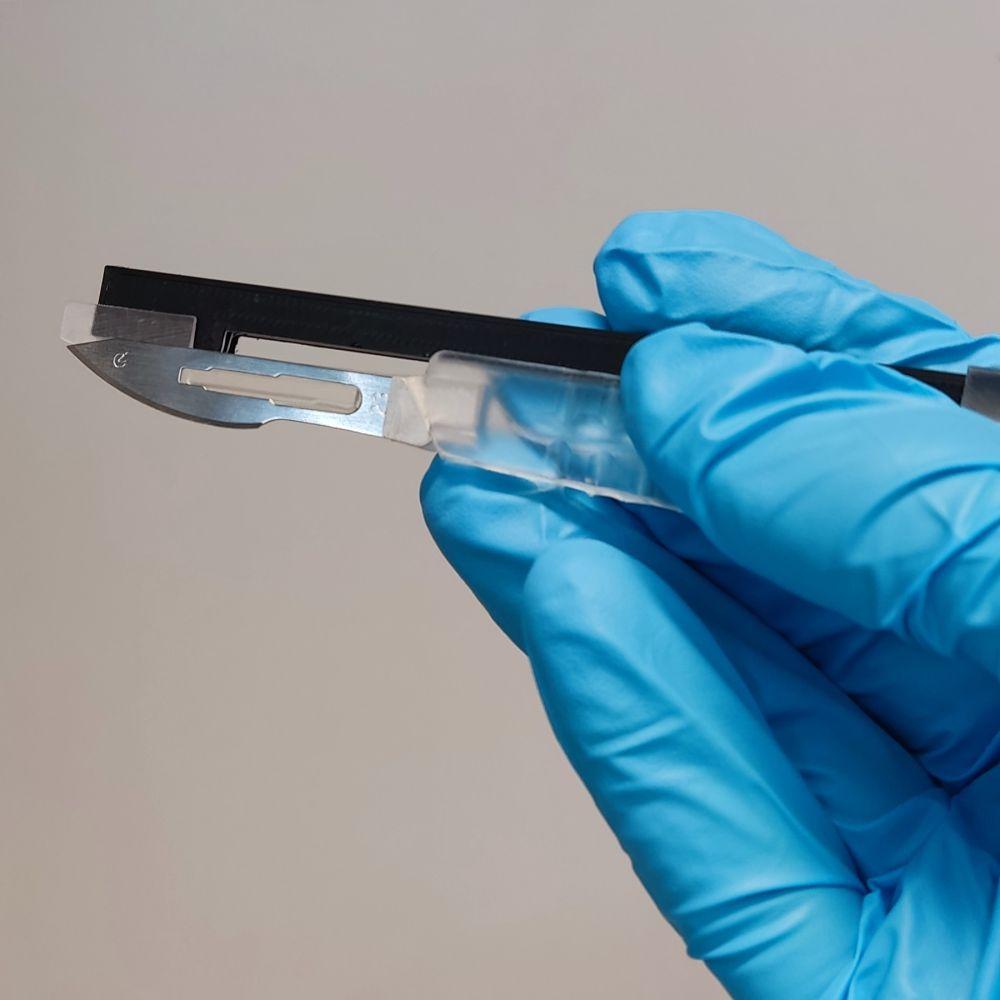
A scalpel that can diagnose? UCT Prague scientists published a new diagnostic tool concept
Imagine a surgeon who does not have to wait for laboratory test results during an operation – the surgical instrument itself could one day provide basic information about the patient’s condition right in the operating room. The first step toward this vision has been taken by researchers at the University of Chemistry and Technology, Prague (UCT Prague) in the group of Professor Zdeněk Sofer (Sofer Group).
Proof of Concept: “Lab-on-a-Scalpel”
The research team has developed the concept of a “Lab-on-a-Scalpel” – a surgical tool with an integrated electrochemical sensor produced using 3D printing. So far, the sensor works under laboratory conditions and can detect selected metabolites, for example, compounds related to stress response.
How does it work?
- The electrochemical sensor is directly integrated into the handle of the tool.
- By combining plastic with carbon nanomaterials produced during 3D printing, the sensor can measure low concentrations of analytes.
- The sensor must be optimised for specific analytes (depending on the environment and pH, for example in buffer solutions).
What are the future possibilities?
If the technology can be further developed, it might one day enable:
- Rapid detection of metabolites during surgery or biopsy.
- Monitoring of ions and pH directly in tissue in real time.
- Support for oncological and emergency procedures, where time is critical.
For now, however, this is mainly a vision, pointing to how nanomaterials and 3D printing could one day transform medical diagnostics.
Why is it important?
The study shows that even with commonly available 3D printers it is possible to create a tool with an integrated functional electrochemical sensor. This opens the way to a new generation of diagnostic instruments that could, in the future, accelerate decision-making in the operating room.
Who is behind the project?
The concept was developed as part of research at the Sofer Group at UCT Prague, which has long been focused on nanomaterials and their applications in sensors, electronics, and energy. The publication in the prestigious journal ACS Analytical Chemistry was co-authored by Anastasios V. Papavasileiou, Lukáš Děkanovský, and Zdeněk Sofer.
Read the full article here: https://pubs.acs.org/doi/10.1021/acs.analchem.5c00599







